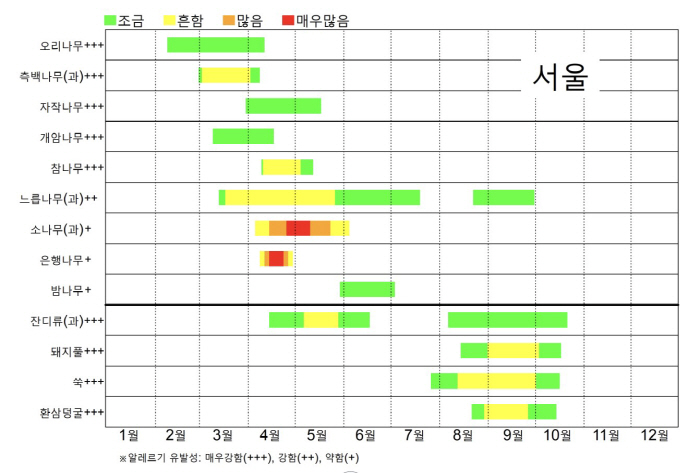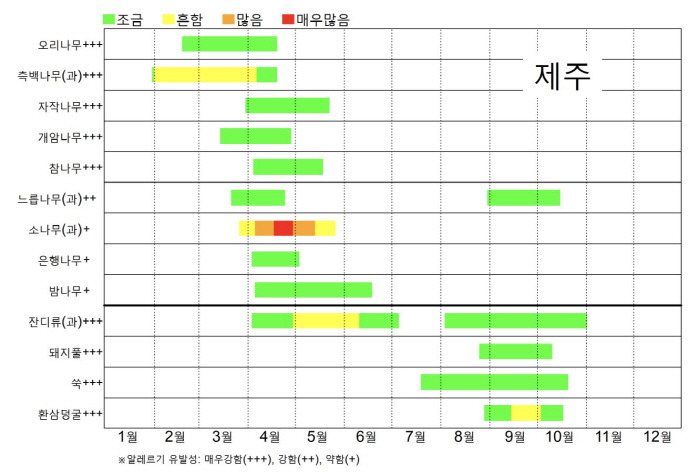Pollen Watch for Allergic Rhinitis Causes...It flies 3 days earlier
Apr 15, 2025
|
|
According to the revised pollen calendar recently released by the Korea Meteorological Administration (reflecting observation information from 2014 to 2024), the average time for tree pollen in spring was three days earlier in eight cities than in the previous calendar. The pollen calendar informs the pollen levels of 13 representative allergy-causing plants in eight cities (Seoul, Gangneung, Daejeon, Jeonju, Gwangju, Daegu, Busan, and Jeju) in four stages. By region, Jeju increased by 7 days, the central region (Seoul, Daejeon, Gangneung) by 5 days, and the southern region (Daegu, Busan, Gwangju, Jeonju) by 1 day.
The Korea Meteorological Administration said "Allergic symptoms caused by trees commonly found in mountainous, park and apartment landscaping trees, such as alder, cypress, and oak, which are highly allergic, may appear faster than in the past, so care should be taken when hiking or outdoor activities." However, the duration of pollen has decreased by an average of four days nationwide. Ginkgo trees, which are common in cities but not highly allergic, have reduced the duration of pollen, but their concentration is getting thicker, so it is necessary to be careful when outdoor activities in urban areas during the period.
Grass, which has a very strong allergy-causing degree, flies pollen twice in spring and autumn, and the annual duration of pollen distribution was reduced by 10 and 3 days in the central and southern regions, respectively, but it was longer by 34 days in Jeju, showing a large regional difference.
The duration of pollen distribution of weeds in autumn increases by an average of five days nationwide, requiring caution during outdoor activities. Among weeds, pig grass and mugwort tended to delay pollen by about a week on average across the country, and hwansam vines tended to be delayed by about a week.
Meanwhile, according to the Ministry of Health and Welfare's National Nutrition Survey, pollen is one of the three leading causes of allergic rhinitis, which 17.4% of adults and 36.6% of teenagers suffer from along with house dust mites and pets, and is also the cause of allergic conjunctivitis and asthma.
Pollen allergies are not known to disappear completely. Therefore, the first countermeasure is 'avoidance', such as refraining from going out, cleaning, wearing a mask, and running a shower or indoor air purifier after going out. If living discomfort increases even through avoidance, you can choose 's symptomatic therapy' that receives medication to relieve allergy symptoms through doctor's consultation. In this process, finding out the cause of allergies through an allergic reaction test (SPT, etc.) if necessary can also help avoid or treat medications. In the case of serious difficulties in life even through symptomatic therapy, it is recommended to receive active 'cause treatment' after consulting with a specialist to restore the quality of life.
This article was translated by Naver AI translator.















